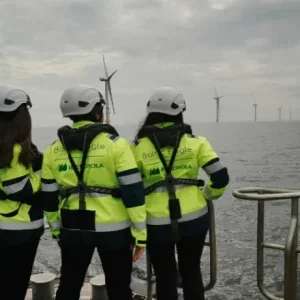Ras Laffan 3 Train 7 is the fourth 7.8 million tons per year LNG plant brought online by Qatar Petroleum and ExxonMobil joint ventures within the past 12 months. It matches the capacity of Ras Laffan 3 Train 6, inaugurated in October 2009, the company said.
The company added that these facilities have sufficient scale to competitively reach markets globally. Qatar’s giant North Field, which is estimated to contain in excess of 900 trillion cubic feet of natural gas, will supply both trains.
Neil Duffin, president of ExxonMobil Development Company, said: “The start-up of Ras Laffan 3 Train 7 represents a significant accomplishment in the further development of natural gas from the North Field to help supply growing global energy demand.
“Initiating LNG production from Ras Laffan 3 Train 7 marks another major milestone in the unprecedented effort between Qatar Petroleum and ExxonMobil to design and effectively implement the largest liquefaction trains, LNG vessels and terminals in the world.”
According to the company, Ras Laffan 3 is part of a full value-chain investment that includes the facilities associated with natural gas production and liquefaction in Qatar. Also involved are investments by affiliates of Qatar Petroleum and ExxonMobil in 12 new Q-Flex LNG vessels and one Q-Max LNG vessel.
The company said that the Q-Flex and Q-Max designs can carry about 45% and 80%, respectively, more LNG than the average carrier operating today and can access LNG terminals in all of the world’s major LNG markets.
The final key component of the value chain is the Golden Pass LNG terminal, under construction near Sabine Pass, Texas, capable of re-gasifying 15.6 million tons per year of LNG. The joint venture consists of affiliates of Qatar Petroleum (70%), ExxonMobil (17.6%) and ConocoPhillips (12.4%) and is expected to start up in 2010.






